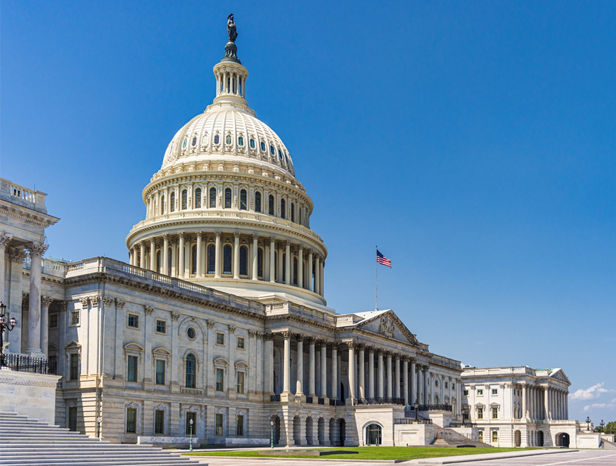News November 15, 2024
10 Post-Election Takeaways for the Print Industry
Women in Print Alliance hosted a panel with four female experts who advocate for the print industry and print-adjacent markets on Capitol Hill.
Now that the U.S. presidential election results are in, what issues will impact the print industry? Women in Print Alliance Director Lisbeth Lyons Black held a live webinar on Nov. 14 with four female industry advocates to discuss areas such as sustainability initiatives, tariffs and trade agreements.
The panel featured Marie Clarke, president of the Envelope Manufacturers Association; Beth Hughes, vice president of trade and customs policy at the American Apparel & Footwear Association; Jocelyn Kelly, vice president of communications at the Consumer Brands Association; and Julie Philp, senior partner of ACG Advocacy, on behalf of PRINTING United Alliance. Black and the four panelists have extensive experience lobbying for the print and print-adjacent industries at local and national levels of government. Here are 10 key takeaways from the discussion.
- More Female Influence in Government: Women have historically been left out of advocacy and policy discussions. This reality highlights the need for more female inclusion in print and print-adjacent industries and in their advocacy groups.
- Postal Policy Challenges: The USPS is facing issues with slow and expensive mail services. Despite recent changes and new ideas, the reliability and cost of mail remain significant concerns that need collective advocacy for solutions.
- Economic Impact of the USPS: The postal industry supports 7.9 million jobs, comparable to the automotive and airline industries. It’s crucial for rural America since it’s essential in delivering medications, Social Security checks and other vital items.
- Bipartisan Support: Postal issues are highly bipartisan, with widespread support for improving mail services. The Keep US Posted campaign is a grassroots effort to hold the USPS accountable and improve service.
- Sustainability in Print: The print industry is focusing on sustainability, with paper being highly recyclable and recycled. There’s a push for extended producer responsibility bills, and it’s important to get involved at the state level to implement environmental policies.
- Impact of Tariffs on Apparel & Accessories: The apparel and accessories industry is heavily affected by tariffs, which are ultimately a tax. High tariffs contribute to inflation and increased costs for consumers.
- Trade Program Renewals: Important trade programs like the African Growth and Opportunity Act and the Generalized System of Preferences are set to expire soon. Renewing these programs is vital for supporting stable careers and diversifying supply chains around the world.
- Digital Packaging & Consumer Trust: Digital packaging is a growing segment, and initiatives like “Facts up Front” and “SmartLabel” enhance transparency and trust with consumers. These efforts help consumers make informed decisions and support recycling.
- Economic Contributions of the Print Industry: The consumer packaged goods industry is a significant part of the American economy, contributing over $2.5 trillion to GDP and providing over 22 million jobs. Advocacy for the industry is essential to maintain its economic impact.
- Importance of the Advertising Tax Deduction: The Advertising Tax Deduction – which makes business-related advertising a deductible expense – is crucial for many companies in the print industry. Advocacy to protect this deduction is necessary to ensure the continued viability of these businesses.

